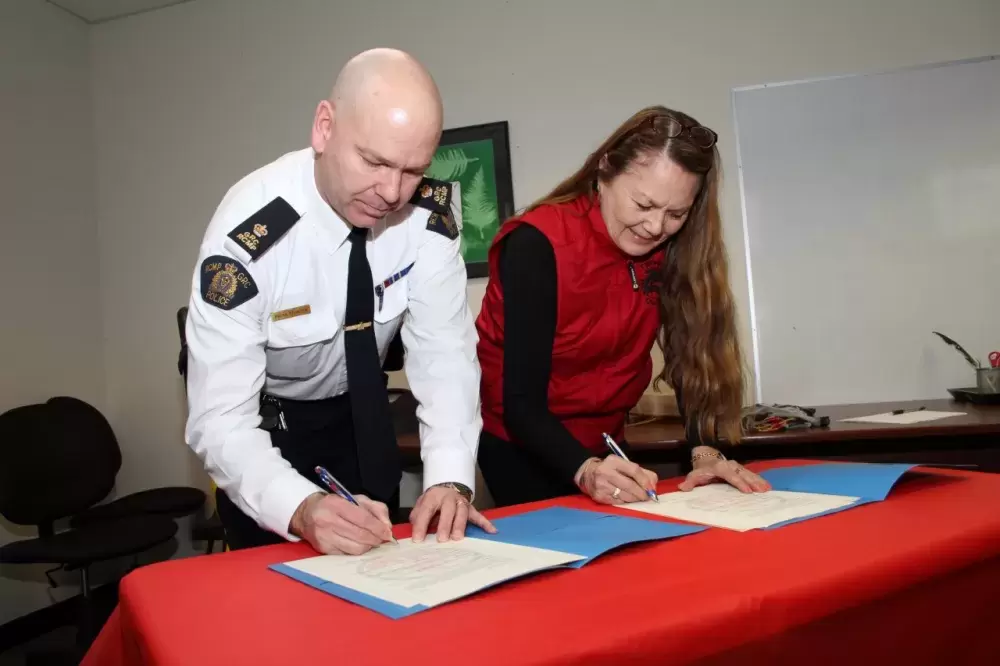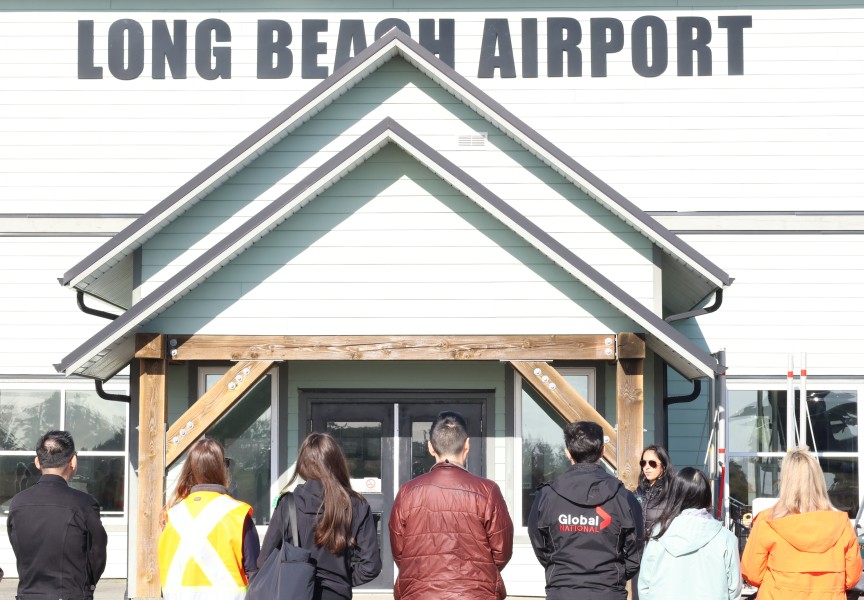Today members of the RCMP came to the Teechuktl Mental Health office to sign an agreement that for years Geraldine Edgar-Tom didn’t think was possible.
“It’s a great day to be happy, and a great day to be grateful that we’re able to sit in a room like this - which I would say 25 years ago we could not,” said Edgar-Tom, a Nuu-chah-nulth elder and cultural support worker with Teechuktl’s Quu’asa-program, about the new agreement with the Port Alberni RCMP. "It’s huge for me. I had no trust for any of you, and so did a lot of other people.”
The agreement solidifies a partnership between the Port Alberni RCMP and Teechuktl, allowing police to refer cases to the cultural and clinical support office when they come across mental health-related issues among First Nations people in the area.
Cpl. Jay Donahue manages First Nations community policing in Port Alberni. After discussing the agreement with Teechuktl over the last three years, he said the goal is to reduce the number of calls for service and incarcerations involving First Nations members of the community.
“We’re not going to arrest our way out of these situations,” Donahue said. “We need something more than just people coming into our system - our cells - who are being dealt with by police and there’s nothing for them for help or treatment.”
Leaders from local First Nations also came to the signing, including Tseshaht Chief Councillor Cynthia Dick and Steve Tatoosh, elected chief of the Hupacasath First Nation.
“We know the rates of Nuu-chah-nulth people in the corrections system in Port Alberni and outlying communities is very high and there needs to be some sort of change, so these kinds of initiatives are really exciting to Hupacasath people,” said Tatoosh.
Now police can direct those needing treatment or mental health support to Teechuktl. These referrals are usually voluntary for adults, but in cases involving minors under 18 connecting with the Teechuktl staff is mandatory.
“A lot people come into our cells because of substance abuse, because they’re alcoholics, because they’re high on drugs,” said Cpl. Donahue. “In those cases we can reach out to Quu’asa in the first instance.”
Quu’asa coordinator Kim Rai said the agreement will make help available to Nuu-chah-nulth people faster than other existing channels.
“It typically takes a few months, three to four months, to get to a psychiatrist. It takes a couple of months to see a counsellor,” he said. “Because we have clinicians in the office, we’re usually able see the person that day, if not the next day.”
Any support for policing will be welcome in Port Alberni, which has a crime rate double the provincial average – with the worst crime severity index on Vancouver Island. As a measure of violent crimes, Port Alberni’s crime severity index is also double the national average.
“As police officers we often see people at their lowest,” said the detachment’s officer in charge, Insp. Brian Hunter. “That’s probably the best opportunity for us to have the biggest influence we can on people’s lives.”
As a symbol of the new partnership, Geraldine Edgar-Tom tied pairs of eagle feathers together with cedar string. These were gifted to RCMP officers who attended the signing.
“This is huge for our people,” said Edgar-Tom. “I never, ever believed something like this could happen.”







